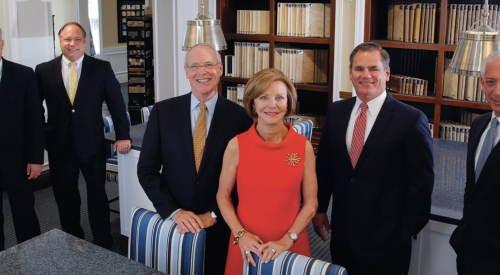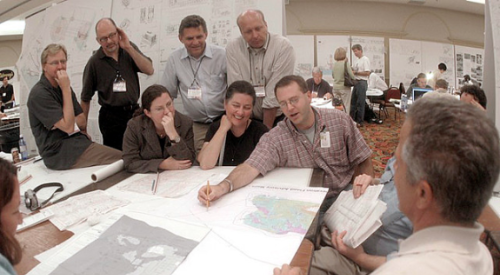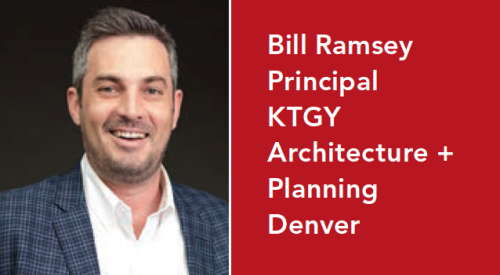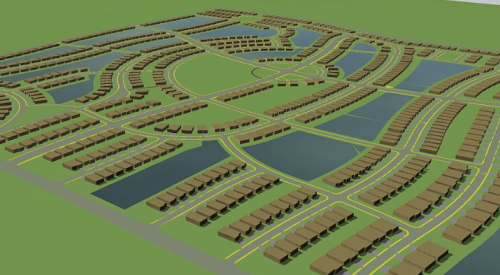Finding and acquiring land has always been key for a successful home builder. But increasingly, the skills that help builders and developers become more profitable than their competitors are those that improve the process of obtaining necessary zoning changes, environmental approvals and finally entitlements.
Part of the reason for the shift is that buildable land near buyers is in short supply in most places. Land once passed over precisely because it would be difficult to rezone and entitle is now being given a closer look. However, the average community these days is more selective about choosing the right developer to build in their backyard. Developing a large parcel of land in an old established community is a lot like running for public office.
All of this was true in the three-year entitlement process of The Pinehills in Plymouth, Mass. The development team knew what it was getting into from the start and was geared up for a protracted campaign. Winning, however, came down to strategy and a host of intangibles that impacted local and state decision makers positively.
1) Have a uniquely positive vision and staying power
Tony Green, managing partner at The Pinehills, was drawn to the property for several reasons. First and foremost was the hilly, view-laden character of the land itself. As a home builder that had built for the growing empty-nester market, he knew the inherent value of views to buyers. He knew that people pay a premium for homes on such lots.
The second and equally important draw to the parcel for Green was an intimate understanding of the flexibility offered by the Open Space Mixed Use Zoning law as it was originally written and passed during early phases of the development process. He knew that it would allow for building homes on the upland portions of the site spread as they were through most of the area while leaving the valleys and the kettles in between for open space and view shed.
Pinehills partner Steve Karp of New England Development noted that "3000 acres of pine forest on a state highway interchange with a historic dirt road offered the opportunity to create an entire town with environmental sensitivity."
Green also believed that his process for siting each home to maximize views of open space, along with a demonstrated philosophy of being as non-intrusive as possible on the land would be strong selling points to local officials who must approve the plan.
2) Know that there is no such thing as "too professional"
Elspeth Franks, a neighbor to the Pinehills parcel, quickly converted from being a skeptic of any development on the property to being a proponent of it as presented by Tony Green. Her experience mirrors that of many other neighbors as well as local and state officials who came to eventually understand and advocate the development. Franks says her initial opposition to the development began to fade based upon the professional tenor and tone of the first meeting the development team held with the local community in June of 1997.
"They flew in experts from around the country to talk about how this project was going to be the best of its kind," says Franks. "Right then I knew that this was not going to be a fly-by-night operation."
For their part, Green and his team never let down on their thoroughly professional way of operating. This meant going well beyond the typical renderings and site plans. They performed volumes of analyses from soil percolation and aquifer studies to complete surveys of plant and animal life in the area. Usually these were offered to the public well before they were required by the authority with jurisdiction over whatever the particular matter happened to be.
During one of the key votes of the Town Meeting, legendary golf professional and a designer of one of the four Pinehills golf courses, Jack Nicklaus made an appearance on behalf of the team. Also appearing that night was Terry Harwood, a top executive with Marriott Corp. Green and other members of the development team acknowledge that although the visits did not make the ultimate difference between the success and failure of the entitlement process, the message of commitment to professionalism was clear.
3) Never waver or renege on an opportunity to demonstrate commitment to the process
Pinehills’ developers scored their biggest psychological benefit among the Plymouth community by their willingness to share as much information about their plans as possible. The theory was: when presented with the facts, nobody, except for even the staunchest open space advocates, could deny that the community was bound to be both beneficial to the area and sensitive to historical and environmental concerns. With that in mind, the developers issued several standing invitations to neighbors and state and local officials. First, they offered site tours in which Tony Green and Pinehills’ project manager John Judge were able to fully enunciate their vision for the property. Part of each site tour was conducted on foot on machine-mowed pathways through the underbrush that wound in and out to preserve all the trees. This approach enabled the hundreds of tour participants to best understand the view-oriented character of the land. Another standing invitation to neighbors, officials, supporters and opponents was the opportunity to tour any of the neighborhoods built by The Green Companies. The message became clear to all: we like what we do, we do it well and we are willing to absorb the costs of showing each and every last person what that means.












